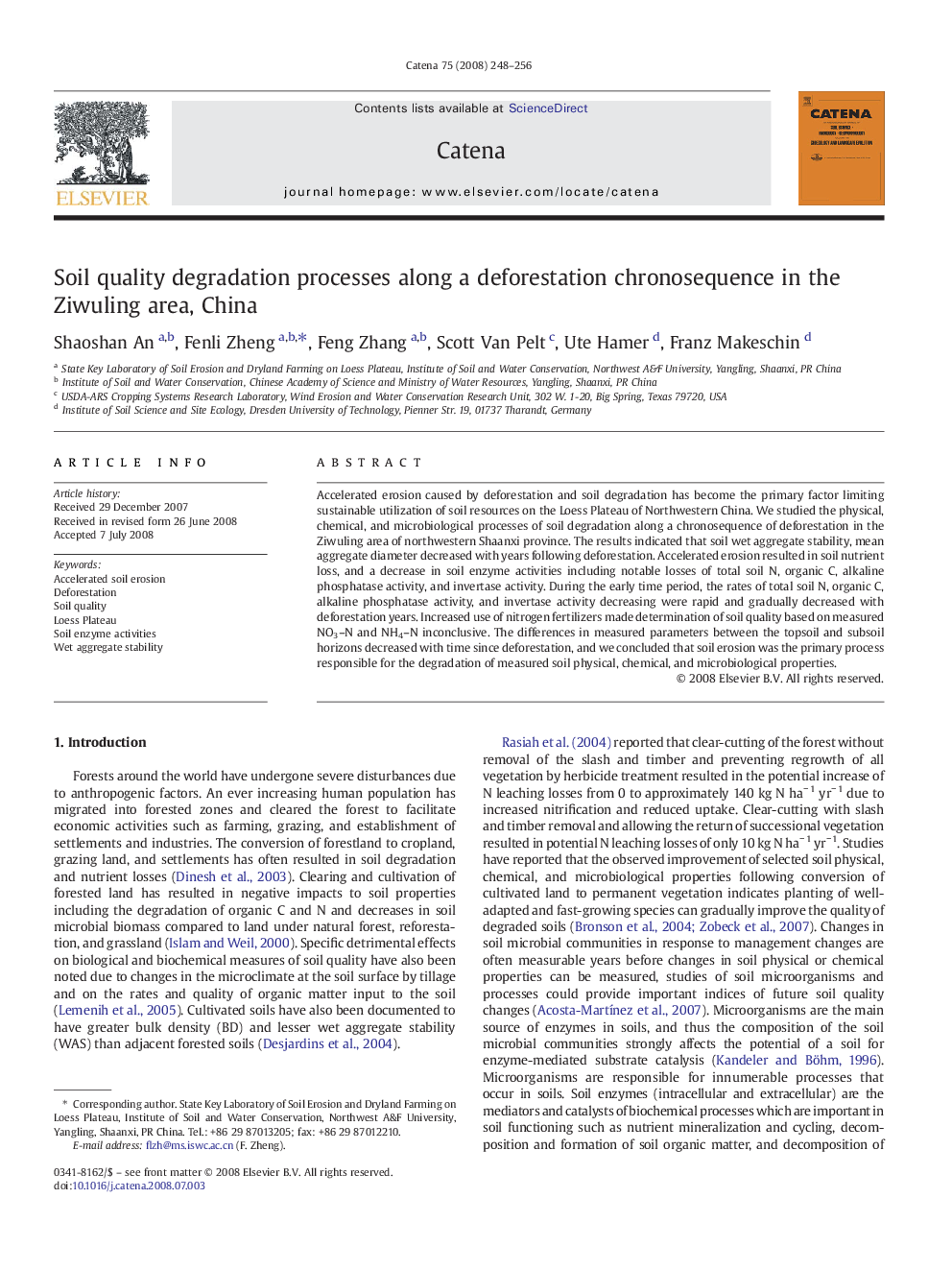| Article ID | Journal | Published Year | Pages | File Type |
|---|---|---|---|---|
| 4572461 | CATENA | 2008 | 9 Pages |
Accelerated erosion caused by deforestation and soil degradation has become the primary factor limiting sustainable utilization of soil resources on the Loess Plateau of Northwestern China. We studied the physical, chemical, and microbiological processes of soil degradation along a chronosequence of deforestation in the Ziwuling area of northwestern Shaanxi province. The results indicated that soil wet aggregate stability, mean aggregate diameter decreased with years following deforestation. Accelerated erosion resulted in soil nutrient loss, and a decrease in soil enzyme activities including notable losses of total soil N, organic C, alkaline phosphatase activity, and invertase activity. During the early time period, the rates of total soil N, organic C, alkaline phosphatase activity, and invertase activity decreasing were rapid and gradually decreased with deforestation years. Increased use of nitrogen fertilizers made determination of soil quality based on measured NO3–N and NH4–N inconclusive. The differences in measured parameters between the topsoil and subsoil horizons decreased with time since deforestation, and we concluded that soil erosion was the primary process responsible for the degradation of measured soil physical, chemical, and microbiological properties.
